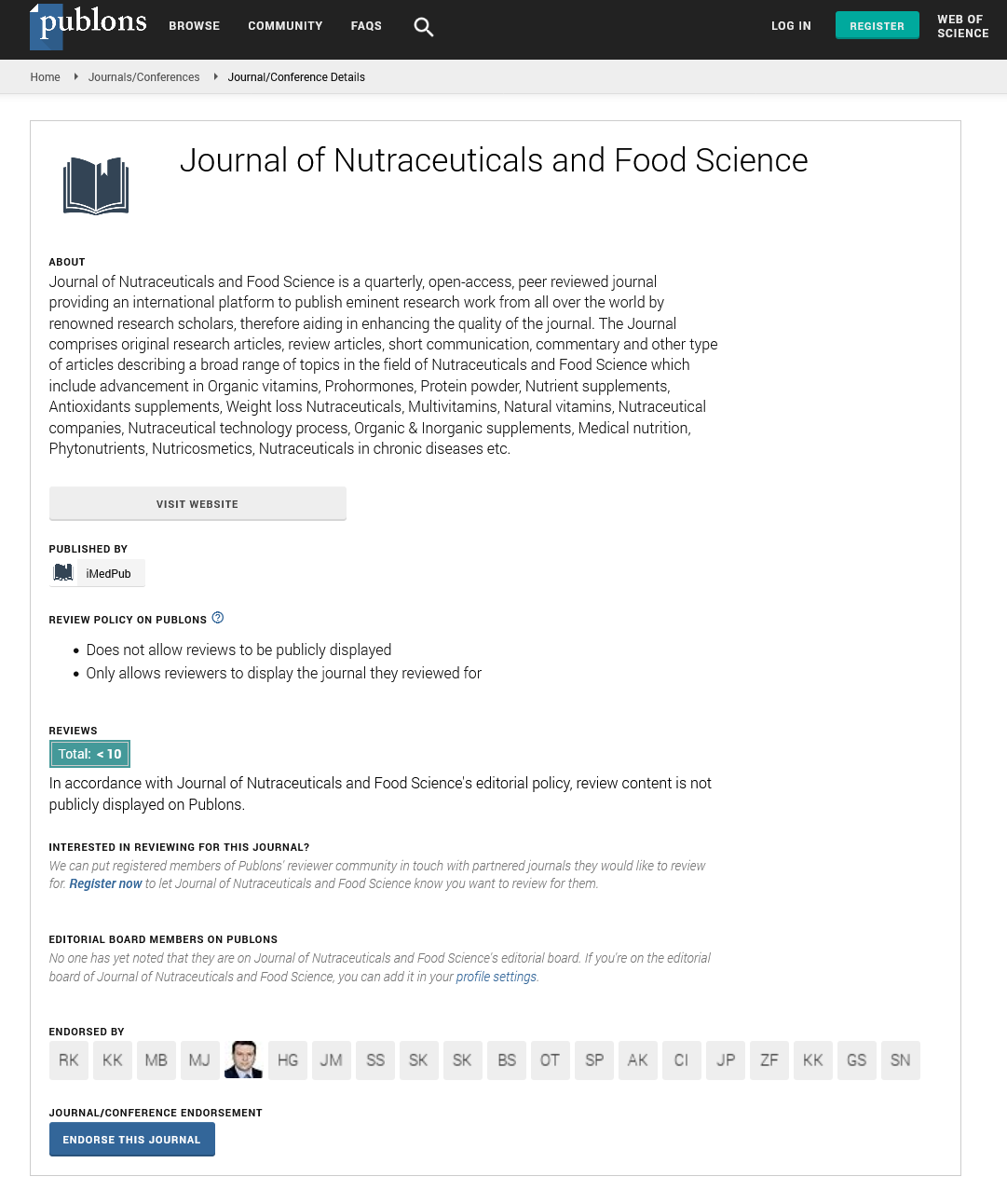Abstract
Nutritional Assessment and Associated Factors in the Elderly: An overview
The world population is facing a serious transition of ageing. Every single country experiencing growth in the number as well as proportion of elderly population. Globally elderly are the fastest growing age group. Older adults are a heterogeneous population with diverse nutritional requirement. For the elderly group, the most important purpose of nutrition is not only growth, but also to support of the metabolism and repair capacity, thus delaying aging related processes. Functioning of every nutrition stage, such as ingestion, digestion, absorption, transport, assimilation, and excretion, is transformed with aging. That makes some nutritional requirements in the elderly different from younger adults. Aging and nutrition have direct innate relationship with each other. Physical, mental, social and environmental variables which take place with ageing may affect the nutritional status of elderly people. The outlay of biological ageing is not programmed and interestingly some lifestyle interventions can reduce the rate of health decline with age. Research proved that exercise and dietary intervention provide the strong evidence in improving the rate of biological ageing, increased longevity while calorie restriction seen as a consequence. A proper dietary guideline also proved to prevent the risk of chronic diseases and mortality and thereby improved the quality of life with ageing. Thus, the aim of the present review is to showcase all the scientific evidence conducted among elderly population to behold the profundity of ageing and different exposure associated with it. Furthermore, successful community-based management or treatment strategies adapted by other population of the world will be discussed with a focus on how to maintain adequate nutritional status and lower the different disease risk factors by implementing the same.
Author(s):
Dilip Ghosh1* and Joyeta Ghosh2
Abstract | Full-Text | PDF
Share this

Google scholar citation report
Citations : 393
Journal of Nutraceuticals and Food Science received 393 citations as per google scholar report
Journal of Nutraceuticals and Food Science peer review process verified at publons
Abstracted/Indexed in
- Google Scholar
- Publons
- Secret Search Engine Labs
Open Access Journals
- Aquaculture & Veterinary Science
- Chemistry & Chemical Sciences
- Clinical Sciences
- Engineering
- General Science
- Genetics & Molecular Biology
- Health Care & Nursing
- Immunology & Microbiology
- Materials Science
- Mathematics & Physics
- Medical Sciences
- Neurology & Psychiatry
- Oncology & Cancer Science
- Pharmaceutical Sciences


